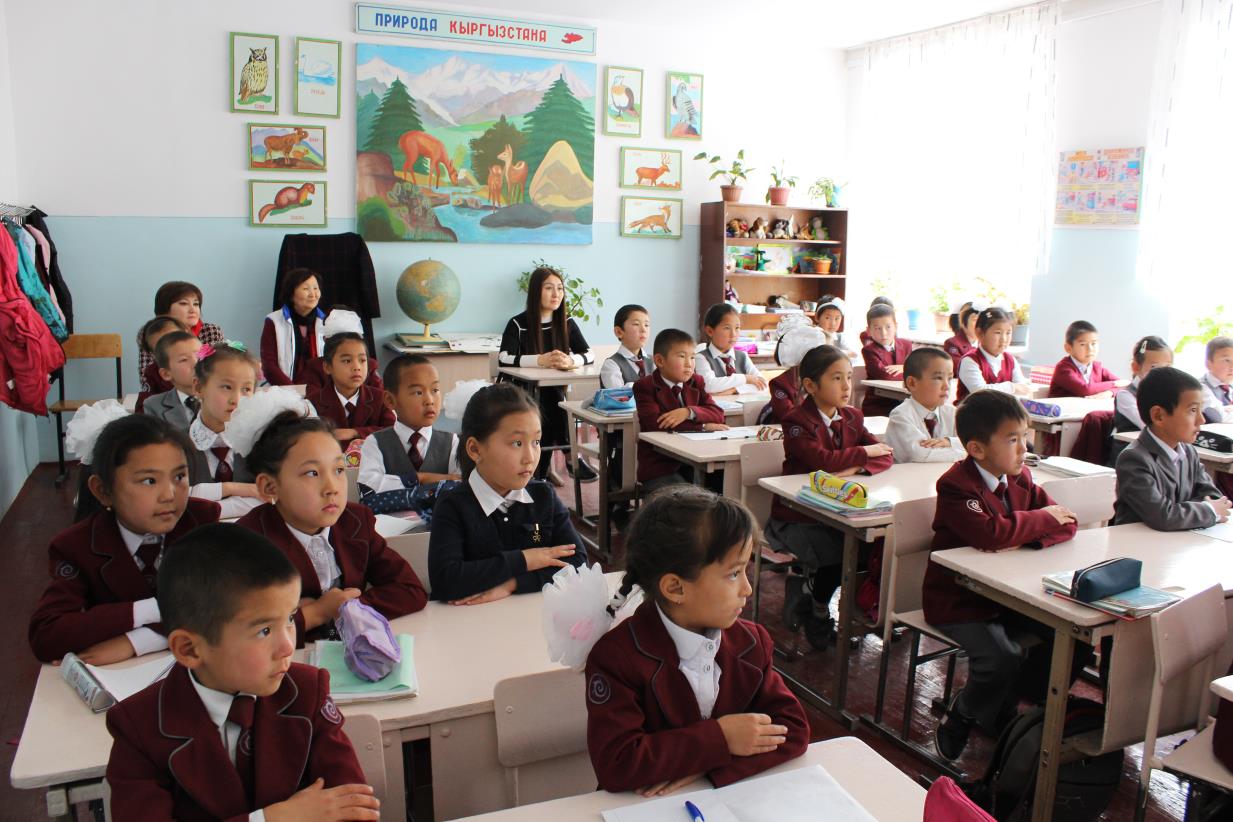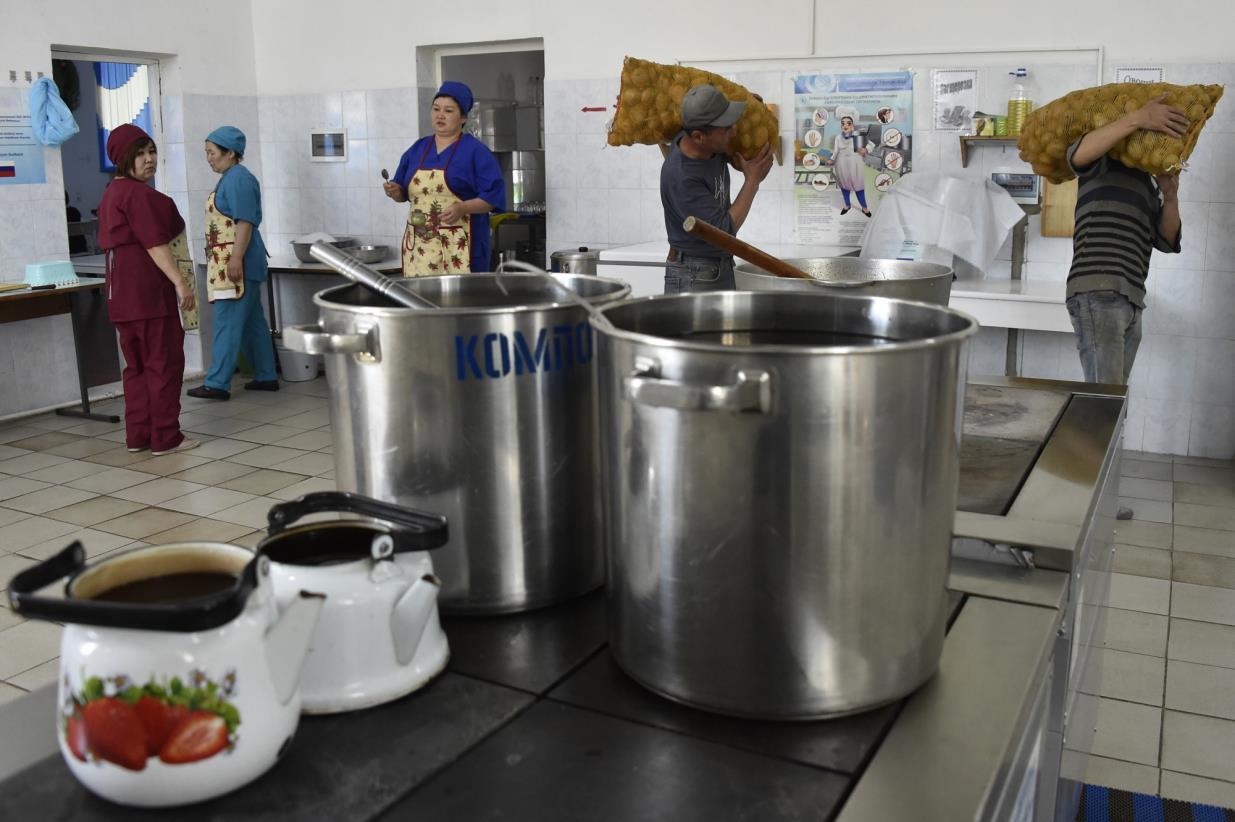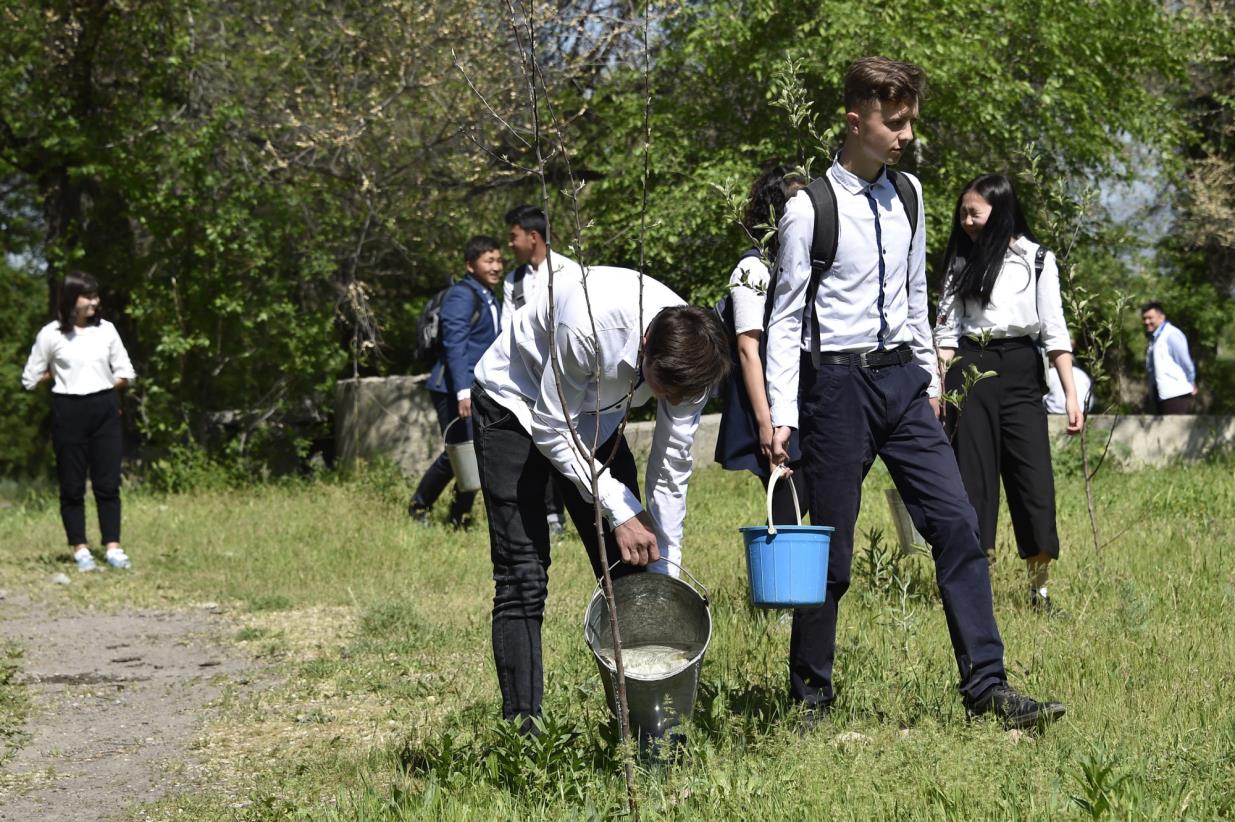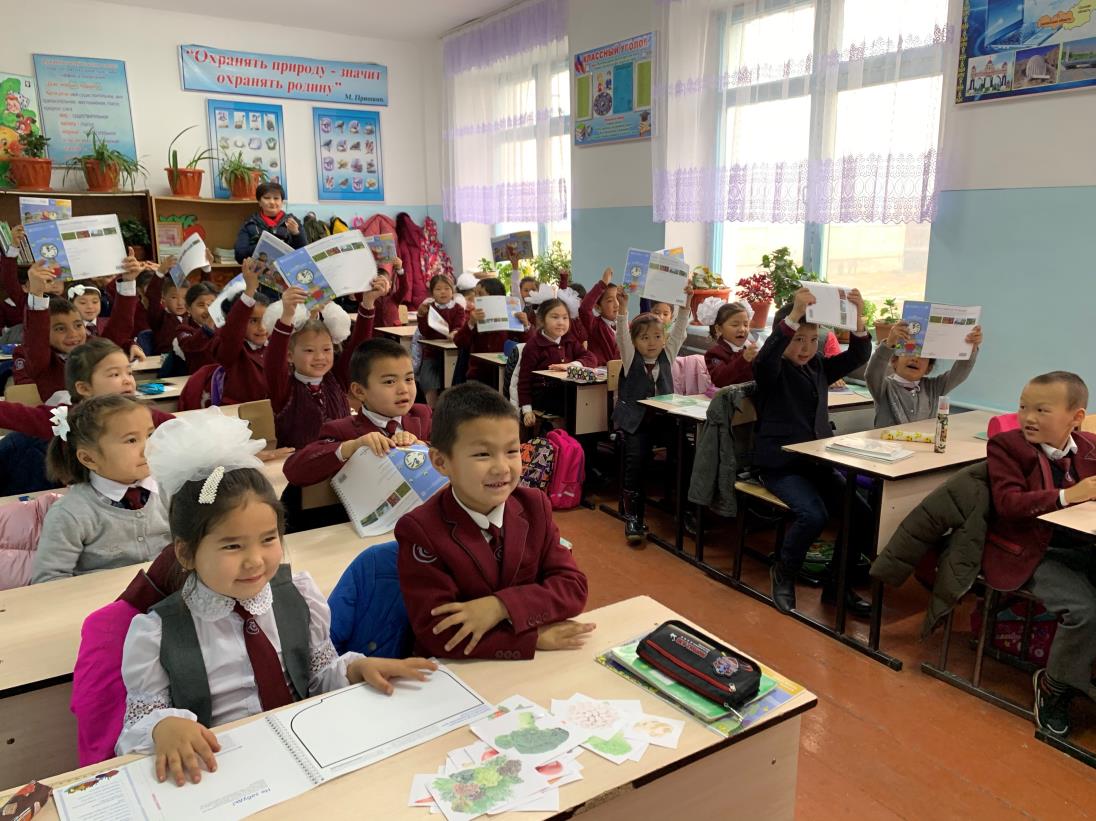
Eating healthy starts at school
FAO supports a comprehensive approach to building healthy eating habits among schoolchildren
©FAO/Karina Levina
04/12/2019
It takes a lot to build a good habit, but very little to ruin it. Healthy eating habits are not an exception; they not only take months or even years of a healthy diet routine and enabling food environment, but also are influenced by taste preferences and consumer behaviors formed during childhood, the most fertile years of our lives.
Without any doubt, families are the first source of a child’s habits, especially eating habits. As children grow older, schools, where children spend most of their time during the day, start to play an even more significant role than family households in forming a young person’s behaviors.
Building upon the national school meal programme, FAO and the Government of the Kyrgyz Republic realized that healthy school meals, although being critical for children’s physical development and academic performance, are only one of the building blocks for forming healthy eating habits. A comprehensive approach, which includes the procurement of healthy foods to begin with, an appreciation of what it takes to grow healthy foods, as well as nutrition education, is also vital.
Healthy food for school meals must come from somewhere. As in most developing countries, more than 70 percent of food in the Kyrgyz Republic is produced by smallholders and family farmers. However, they frequently face difficulties in accessing markets, including public tenders for school meal procurement, due to low production volumes. To address this issue, FAO assisted the government in piloting an alternative model of public procurement based around a home-grown school feeding model through the establishing of a logistic centre.


©FAO/Vyacheslav Oseledko
The centre purchases fruits and vegetables from smallholders and family farmers residing in nearby villages before performing respective certification procedures through local sanitary and epidemiological service laboratories and transportation facilities in Kemin district of Chuj region. Finally, the logistic centre will participate in public tenders to provide healthy produce to 29 schools in Kemin district for the national school meal programme.
Knowing that a school meal contains only healthy and locally produced foods is important, but only one step in a comprehensive approach. With FAO technical backstopping, the Kyrgyz government has developed a school gardening initiative that seeks to bridge the gap between knowing what is on the school meal plate and understanding how it was grown.

©FAO/Karina Levina
School gardens can play an important role in enhancing school meals and, more importantly, cultivating an appreciation of healthy food by showing children how to grow a variety of fruits and vegetables that they then consume themselves. This also promotes horticultural and entrepreneurial skills as part of life skills development, raise awareness of the need for environmental protection and soil conservation, and leads to an overall understanding of a food system approach to healthy nutrition.
However, increasing children’s access to and consumption of fresh vegetables and fruits, in addition to increasing their general preference for healthy and diverse food choices, does not happen automatically after an introduction of healthy school meals and school gardening activities. Knowing what makes food healthy through school-based food and nutrition education is another essential element of a comprehensive approach. Supported by a healthy food environment and integrated into the school curriculum, nutrition lessons help schoolchildren to further improve their diets and food choices by building their capacity to act as agents of change in their households and communities.
Incorporating this comprehensive approach for the second year in a row during World Food Day week, FAO organized a series of nutrition education lectures and school events covered by the national school meal programme, linked to the logistic centre and operating a school garden. Children further learned about healthy foods and a healthy diet through constructing healthy menus and discussions about what they can do to help their country achieve the Sustainable Development Goal 2. In these ways, FAO, with the Ministry of Education and school administrations, are working together in the Kyrgyz Republic to take small yet significant steps toward lifelong healthy eating habits.
The pilot is a part of the comprehensive project “Developing capacity for strengthening food security and nutrition in selected countries of the Caucasus and Central Asia,” funded by the Russian Federation. Under the same project, a conference on 11-13 December in Minsk will discuss different school food and nutrition approaches in Europe and Central Asia.
Related links
Read more
